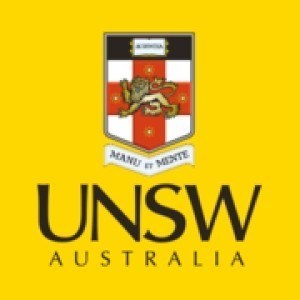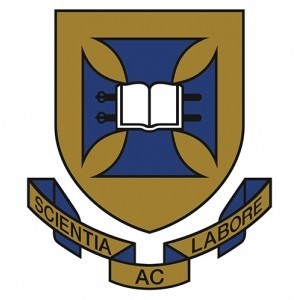Photos of university / #unsw
The Bachelor of Social Sciences at the University of New South Wales offers students a comprehensive and dynamic education in understanding human societies and the complex social, cultural, political, and economic forces that shape our world. This program is designed to equip students with critical thinking, analytical skills, and a deep understanding of social phenomena, preparing graduates for diverse careers across public, private, and non-profit sectors. The curriculum provides a broad foundation in social sciences, covering disciplines such as sociology, politics, anthropology, human geography, and social policy, allowing students to tailor their studies to their interests and career aspirations. Students engage with contemporary social issues, develop research competencies, and explore theoretical frameworks that underpin social analysis. Throughout the program, there is an emphasis on practical application, including opportunities for internships, community engagement, and research projects, fostering essential skills for real-world challenges. The program also encourages interdisciplinary approaches, enabling students to integrate perspectives from different social science disciplines. With access to cutting-edge resources, renowned faculty, and vibrant campus life, students at UNSW are supported to become informed, reflective, and active citizens who can contribute meaningfully to societal development. Graduates of the Bachelor of Social Sciences are well-prepared for careers in government, policy analysis, community development, international relations, social research, advocacy, and beyond. They may also choose to pursue further studies at postgraduate level, specializing in areas such as social research, human rights, or public policy. The program emphasizes critical inquiry, ethical understanding, and global awareness, ensuring students graduate with the knowledge and skills necessary to analyze and influence societal change. Overall, the Bachelor of Social Sciences at UNSW offers a rigorous, engaging, and flexible pathway for students passionate about understanding social dynamics and making a positive impact on the world.
This program involves a minimum of three years full-time study. Students undertake supervised research leading to the production of the thesis.
The length of a doctoral thesis normally should not exceed 100,000 words of text and should be submitted for examination within 4 years of full-time study.
- IELTS Academic version only 6.5 overall (min. 6.0 in each subtest)
- TOEFL Internet-based Test (iBT) 90 overall (min.23 in writing, 22 in reading, listening and speaking)
- TOEFL Paper-based Test (PBT) 577 overall (min. 5.0 in TWE)
- Electronic transcripts*: Applicants need to provide a scanned or electronic copy of transcripts for all tertiary degrees completed or attempted, including current degrees. For those students undertaking a research degree which does not have specific scores, an enrolment summary will be required to show which semesters the applicant was enrolled. All pages of one transcript, including the original language copy, should be provided in one document.
- Grading systems*: These are explanations of what specific scores/grades mean at a specific University/Institution. These must be provided for each University the applicant has attended.
- Curriculum Vitae (CV)*: This must include details of previous research, such as a summary of all research outputs and experience, including publications, conference presentations, etc. Work samples such as abstracts may be attached as appendices to the CV.
- Research Proposal*: Please see Step 2
- Supervisor Contact*: Please see Step 2
- Testamurs: These are certificates of completion for prior degrees. If you are currently studying, the testamur for this degree can be submitted at a later date. Your application can be provisionally assessed without these. All pages of one testamur, including the original language copy, should be provided in one document.
- Current/Final semester results: This is only required for any students still undertaking a tertiary degree. These are not required until you have completed all requirements of your current degree, including any thesis components. Once you have completed, you will need to submit your final transcript and any examiners reports (if applicable).
The University of New South Wales offers various funding options for students enrolled in social sciences programs to support their academic pursuits. Domestic students may be eligible for government-funded scholarships such as the Australian Scholarships Group, university-specific bursaries, and financial aid packages that assist with tuition and living expenses. These scholarships are awarded based on academic merit, financial need, or specific criteria related to the applicant's background and area of study. International students can access a range of scholarships designed to attract global talent, including the UNSW International Scholarships, which provide partial to full tuition fee waivers and stipends. In addition to scholarships, students can explore government loan options such as HECS-HELP for eligible Australian students, which allows deferment of tuition payments until income thresholds are met post-graduation. UNSW also offers work-study opportunities, allowing students to earn income through part-time employment while completing their studies, often related to their field of social sciences, such as research assistantships or internships. The university provides financial counselling services to help students navigate funding options and manage their budgets effectively. External funding sources, including research grants, private foundations, and industry-sponsored fellowships, are also available for postgraduate students undertaking research components within their social sciences programs. International students are advised to explore scholarship opportunities specific to their country of origin and to consider external financial aid programs that may assist with tuition and living costs. Overall, the university promotes a comprehensive approach to financing studies, combining government support, university-sponsored financial aid, external funding, and employment opportunities to ensure that students can focus on their academic and professional development in social sciences without undue financial hardship.
The Bachelor of Social Sciences at the University of New South Wales is a comprehensive undergraduate program designed to provide students with a strong foundation in social science theories, methodologies, and contemporary issues. This degree program offers a flexible curriculum that allows students to tailor their studies according to their interests and career aspirations, covering a broad spectrum of disciplines such as sociology, anthropology, political science, human geography, and social policy. The program emphasizes critical thinking, analytical skills, and research capabilities, which are essential for understanding complex social phenomena and contributing meaningfully to societal development.
Students enrolled in the Bachelor of Social Sciences can choose majors or specializations that align with their professional goals, including areas like Indigenous studies, international relations, community development, and environmental studies. The curriculum incorporates a mix of core courses, elective subjects, and practical components such as internships, research projects, and fieldwork, which enhance real-world experience and foster engagement with communities and organizations. UNSW’s focus on contemporary social issues ensures that students are equipped to address topics like social justice, inequality, globalization, and digital transformation.
The program is designed to develop not only academic knowledge but also transferable skills including communication, teamwork, ethical reasoning, and policy analysis. With a strong emphasis on research and critical engagement, students learn to analyze data, interpret social trends, and develop innovative solutions to societal challenges. The learning environment at UNSW encourages collaboration among students and faculty through seminars, workshops, and interdisciplinary initiatives, fostering a vibrant academic community.
Graduates of the Bachelor of Social Sciences often pursue careers in government agencies, non-profit organizations, research institutions, consulting firms, and international development agencies. They are well-prepared to contribute to policy formulation, social planning, community advocacy, and academic research. The program also provides a solid foundation for those wishing to continue their studies through postgraduate coursework or research degrees, enabling further specialization in the social sciences. Overall, the Bachelor of Social Sciences at UNSW aims to produce socially conscious graduates capable of making meaningful contributions to society through knowledge, research, and practical action.









